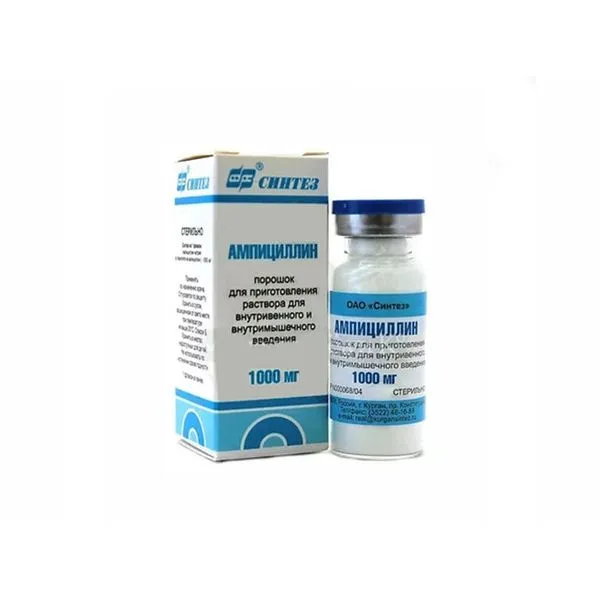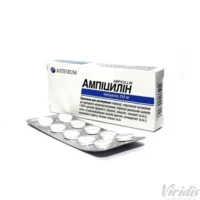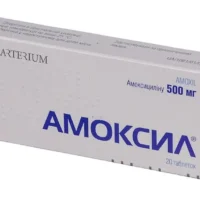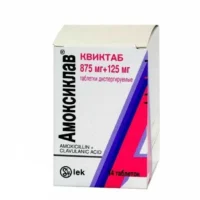Description
Ampicillin (Ampicillin Sodium Salt) 1g Vial
Composition
Active ingredient: Ampicillin sodium salt
Mechanism of Action
Ampicillin is a beta-lactam antibiotic that interferes with bacterial cell wall synthesis by binding to penicillin-binding proteins. This inhibits the final transpeptidation step of peptidoglycan synthesis, leading to cell lysis and bacterial death.
Pharmacological Properties
Ampicillin exhibits bactericidal activity against a wide range of gram-positive and gram-negative bacteria. It is effective in inhibiting the growth and multiplication of susceptible bacteria.
Indications for Use
- Treatment of respiratory tract infections
- Urinary tract infections
- Skin and soft tissue infections
- Meningitis
Contraindications
Do not administer Ampicillin if the patient has a known hypersensitivity to penicillins or cephalosporins.
Side Effects
Common side effects of Ampicillin may include gastrointestinal disturbances, hypersensitivity reactions (e.g., rash, itching), and superinfection (e.g., candidiasis).
Usage Instructions
Administer Ampicillin intravenously or intramuscularly as prescribed by a qualified healthcare provider. The usual adult dosage ranges from 250-500 mg every 6 hours.
Benefits Compared to Analogues
Ampicillin offers a broad spectrum of activity against both gram-positive and gram-negative bacteria, providing a versatile treatment option for various infections. Its efficacy and safety profile make it a preferred choice in clinical practice.
Suitable Patient Groups
Ampicillin can be used in pediatric and adult populations. Dosage adjustments may be necessary in patients with renal impairment to prevent drug accumulation and toxicity.
Storage and Shelf Life
Store the vial at room temperature, protected from light and moisture. Do not freeze the product. Check the expiration date on the packaging and do not use expired vials.
Packaging Description
The Ampicillin vial contains 1g of Ampicillin sodium salt for parenteral administration. Each vial is labeled with dosage information and storage instructions.
Clinical Evidence and Proven Effectiveness
Clinical studies have demonstrated the efficacy of Ampicillin in treating various bacterial infections. Research published in the Journal of Antimicrobial Chemotherapy highlighted the effectiveness of Ampicillin against gram-positive and gram-negative bacteria, supporting its clinical utility.





